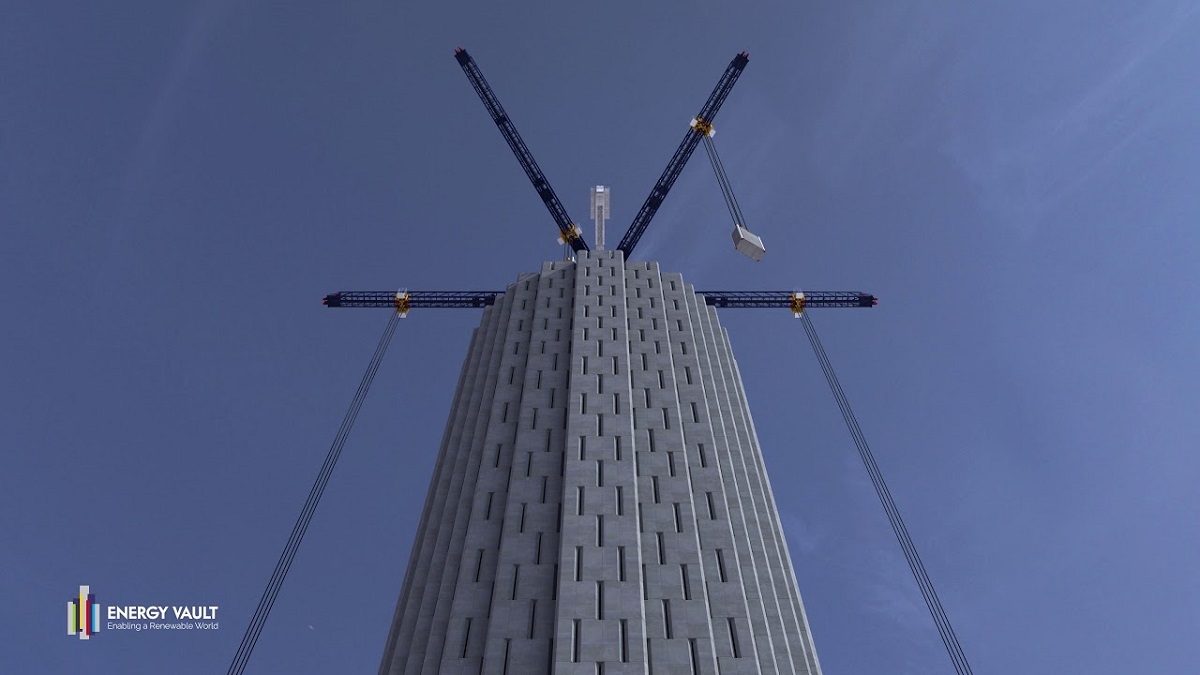Energy Vault has been listed on the New York Stock Exchange (NYSE) after the completion of its merger with special purpose acquisition company (SPAC) Novus Capital Corporation II.
At a meeting last week, the SPAC’s shareholders decided to approve the corporate merger. Energy Vault shares debuted on the New York Stock Exchange (NYSE) February 14 under the symbol ‘NRGV.’ Its warrants are listed as ‘NRGV WS., Energy-Storage.news reports.
The combined transaction generated about US$235 million in gross proceeds for the firm. US$195 million of that is a PIPE commitment from Korea Zinc and Atlas Renewable, both significant partners in Energy Vault, as well as a slew of funds and accounts, including Softbank Investment Advisors.
Korea Zinc increased their PIPE commitment from US$100 million to US$150 million in January, according to Energy-Storage.news. Korea Zinc recognized Energy Vault’s new technology as a potential way to decarbonize its own extraction and refining activities, including Sun Metals, an Australian affiliate.
Meanwhile, Atlas Renewable has teamed with Energy Vault to commercialize the technology in China, with a 100MWh project in Jiangsu Province expected to begin construction in the second quarter of 2022.
China Tianying Inc, a waste processing and recycling company is Atlas Renewable’s largest stakeholder.
Energy Vault CEO Robert Piconi told IPO Edge a few days before the vote that the gravity storage technology’s principles are similar to those of pumped hydro energy storage, except that instead of water flowing downhill, a “energy elevator” transports large composite block weights up and down to turn motors that discharge energy.
Novus Capital Corporation II said in papers filed with the US Securities and Exchange Commission (SEC) that it had been looking for an investment opportunity to buy a target firm since early 2021 before announcing in September 2021 that Energy Vault had been chosen.
Gravity storage technology, according to Novus, does not have the same geological siting limits as pumped hydro and is meant to be less vulnerable to supply chain difficulties than other energy storage technologies such as batteries.
However, in a Form S-4 filed in October of last year, Energy Vault said that the technology and design of its large-scale energy storage systems had not yet been perfected and that the company faced hurdles in making them cost-competitive.
Based on a share price of US$10, the merged firm has a worth of US$1.07 billion.

